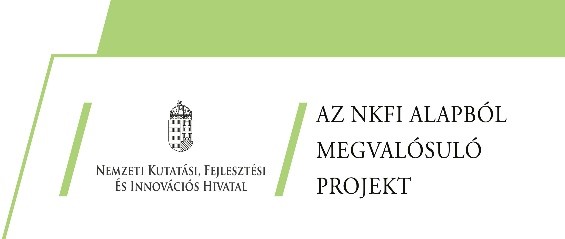A szoftverfejlesztés területén ismertté vált agilis szemlélet egyik legfőbb erőssége a változásokhoz való alkalmazkodás képessége, mely mellett a valódi értékteremtést és a magasabb szintű ügyfélelégedettséget helyezi a középpontba. Mindezek napjaink gyorsan változó, ügyfélközpontúságot hangsúlyozó világában rendkívül fontosak. Ennek köszönhetően az agilis szemlélet egyre elterjedtebbé, ismeretének szükségessége pedig lassan szinte megkerülhetetlenné válik. Az agilis szemléletet az Agilis kiáltvány megfogalmazói négy fő pillérre, négy értékre helyezték. Kutatásom célja, hogy megvizsgáljam az ehhez a négy értékhez való viszonyulást, azt, hogy generációnként mennyire azonosulnak ezekkel munkájuk során az emberek. Jelen tanulmány célja, hogy bemutassa annak a kutatásnak az eredményeit, melyben azt vizsgáltam, hogy az agilis szemlélet alapjának tekintett Agilis kiáltványban megfogalmazott értékekkel az egyes generációk tagjai mennyire képesek azonosulni.
XII. ÉVF. 2024. 1. SZÁM 41-46
DOI: 10.24387/CI.2024.1.7
Cikk megtekintése: http://controllerinfo.hu/wp-content/uploads/2024/08/ContrInf_beliv_2024-01_07.pdf
Köszönetnyilvánítás
A 2021-1.2.4-TÉT-2021-00042 számú projekt az Kulturális és Innovációs Minisztérium Nemzeti Kutatási Fejlesztési és Innovációs Alapból nyújtott támogatásával, a 2021-1.2.4 TÉT pályázati program finanszírozásában valósult meg.

IRODALMI FELDOLGOZÁS
BLASKOVICS, B. – MARÓ, Z.Z. – KLIMKÓ, G. – PAPP-HORVÁTH, V. – CSISZÁRIK-KOCSIR, Á. (2023): Differences between Public-Sector and Private-Sector Project Management Practices in Hungary from a Competency Point of View. SUSTAINABILITY 15, 11236. DOI 10.3390/su151411236
BECK, K. et al (2001): Manifesto for Agile Software Development, Online: www.agilemanifesto.org (letöltve: 2023.08.02.)
COBB, C. G. (2011): Making sense of agile project management: balancing control and agility, Chichester, UK, John Wiley & Sons. ISBN 9780470943366
CONFORTO, E. C. – AMARAL, D. C. (2014): Agile project management and stage-gate model – A hybrid framework for technology-based companies, Journal of Engineering and Technology Management, 40, pp. 1-14. DOI 10.1016/j.jengtecman.2016.02.003
CONFORTO, E. C. – SALUM, F. – AMARAL, D. C. – DA SILVA S. L. – DE ALMEIDA, L. F. M. (2014): Can Agile Project Management Be Adopted by Industries Other than Software Development?, Project Management Journal, 45(3), pp. 21-34. DOI 10.1002/pmj.21410
CSISZÁRIK-KOCSIR, Á. (2023): The Purposes and Motivations of Savings Accumulation based on Generational Affiliation, Financial Education and Financial Literacy, Acta Polytechnica Hungarica, 20(3), 2023, pp. 195-210. DOI 10.12700/APH.20.3.2023.3.12
CSISZÁRIK-KOCSIR, Á – Varga, J. (2020): Banking models and methods among the generation Z, Macrotheme Review: A Multidisciplinary Journal Of Global Macro Trends, 9(1), pp. 1-11. ISSN 1848-4735
CSISZÁRIK-KOCSIR, Á – GARAI-FODOR, M. – VARGA, J. (2021): What has Become Important during the Pandemic? ‒ Reassessing Preferences and Purchasing Habits as an Aftermath of the Coronavirus Epidemic through the Eyes of Different Generations, Acta Polytechnica Hungarica, 18 (11), pp. 49-74. DOI 10.12700/APH.18.11.2021.11.4
CSISZÁRIK-KOCSIR, Á. – DOBOS, O. (2022): Hungarian SMEs’ role and opinion about research, development and innovation projects. In: Szakál, Anikó (szerk.) IEEE 20th Jubilee International Symposium on Intelligent Systems and Informatics (SISY 2022) Szabadka, Szerbia. pp. 199-203. DOI 10.1109/SISY56759.2022.10036321
CSISZÁRIK-KOCSIR, Á. – DOBOS, O. (2023a): The place and role of research, development and innovation projects in the life of Hungarian and Polish micro, small and medium-sized enterprises after the pandemic. In: Szakál, Anikó (szerk.) SISY 2023 IEEE 21st International Symposium on Intelligent Systems and Informatics, Budapest, Magyarország: IEEE Hungary Section, pp. 185-189. DOI 10.1109/SACI58269.2023.10158576
CSISZÁRIK-KOCSIR, Á. – DOBOS, O. (2023b): The aspects of RDI project management in Hungary and Romania in the light of the pandemic. In: Szakál, Anikó (szerk.) SISY 2023 IEEE 21st International Symposium on Intelligent Systems and Informatics. Budapest, Magyarország: IEEE Hungary Section. pp. 179-184. DOI 10.1109/SISY60376.2023.10417935
CSISZÁRIK-KOCSIR, Á. – VARGA, J. (2023): A project analysis of the introduction of public cryptocurrencies – The example of Sand Dollar and Digital Real. In: Szakál, Anikó (szerk.) SISY 2023 IEEE 21st International Symposium on Intelligent Systems and Informatics. Budapest, Magyarország: IEEE Hungary Section. pp. 197-202. DOI 10.1109/SISY60376.2023.10417966
DECARLO, D. (2004): eXtreme Project Management: Using Leadership, Principles, and Tools to Deliver Value in the Face of Volatility, San Francisco, Jossey–Bass. ISBN 0787974099
DOBOS, O. – TÓTH, I. M. – CSISZÁRIK-KOCSIR, Á. – GARAI-FODOR, M. – KREMMER, L. (2022): How Generation Z managers think about the agility in a world of digitalization, IEEE 20th Jubilee World Symposium on Applied Machine Intelligence and Informatics SAMI, pp. 207-212. DOI 10.1109/SAMI54271.2022.9780683
GARAI-FODOR, M. (2021): Food Consumption Patterns, in a Values-based Approach, for Generation Z, Acta Polytechnica Hungarica, 18: 11 pp. 117-134. DOI 10.12700/APH.18.11.2021.11.7
GARAI-FODOR, M. (2022): The Impact of the Coronavirus on Competence, from a Generation-Specific Perspective, Acta Polytechnica Hungarica, 19(8), pp. 111-125. DOI 10.12700/APH.19.8.2022.8.7
GARAI-FODOR, M. – JÄCKEL, K. (2022): Motivational tools and incentives: different generations, different needs at work, In: Anikó, Szakál (szerk.) IEEE Joint 22nd International Symposium on Computational intelligence and Informatics and 8th International Conference on Recent Achievements in Mechatronics, Automation, Computer Science and Robotics (CINTI-MACRo 2022) pp. 167-170. DOI 10.1109/CINTI-MACRo57952.2022.10029558
GARAI-FODOR, M. – VARGA, J. – CSISZÁRIK-KOCSIR, Á. (2021): Correlation between Generation Z in Hungary and the Motivating Factors to Do Volunteer Work in a Value-Based Approach, Sustainability, 13(20), p. 11519. DOI 10.3390/su132011519
GARAI-FODOR, M. – VASA, L. – JÄCKEL, K. (2023/a): Characteristics of consumer segments based on perceptions of the impact of digitalisation. Decision Making: Applications in Management and Engineering 6 : 2 pp. 975-993. DOI 10.31181/dmame622023940
GARAI-FODOR, M. – VASA, L. – JÄCKEL, K.(2023/b): Characteristics of segments according to the preference system for job selection, opportunities for effective incentives in each employee group. Decision Making: Applications in Management and Engineering 6 : 2 pp. 557-580. DOI 10.31181/dmame622023761
KSH (2021): Az aktív korúak és idősek aránya. Online: https://www.ksh.hu/sdg/4-19-sdg-8.html (letöltés: 2023.08.08.)
MIZSER, CS. – GARAI-FODOR, M. – CSISZÁRIK-KOCSIR, Á. (2022): Key competences of young entrepreneurs in the world of digitalisation based on the results of a Hungarian questionnaire research. (2022) In: IEEE 10th Jubilee International Conference on Computational Cybernetics and Cyber-Medical Systems ICCC pp. 281-286. DOI 10.1109/ICCC202255925.2022.9922856
PMI (2017): Agile Practice Guide, Newtown Square, PA: Project Management Institute ISBN 9781628251999
PRENSKY, M. (2001): Digital Natives, Digital Immigrants, On the Horizon (MCB University Press, Vol. 9. No. 5.) Online: https://www.marcprensky.com/writing/Prensky%20-%20Digital%20Natives,%20Digital%20Immigrants%20-%20Part1.pdf (letöltés: 2023.08.05.) DOI 10.1108/10748120110424816
SAJTOS, L. – MITEV, A. (2007): SPSS Kutatási és adatelemzési kézikönyv, Budapest, Alinea Kiadó. ISBN 9789639659087
SAUER, C. – REICH, B. H. (2009): Rethinking IT project management: Evidence of a new mindset and its implications, International Journal of Project Management, 27, pp. 182-193. DOI 10.1016/j.ijproman.2008.08.003
SPUNDAK, M. (2014): Mixed agile/traditional project management methodology – reality or illusion?”, Procedia – Social and Behavioral Sciences, Issue 119, pp. 939-948. DOI 10.1016/j.sbspro.2014.03.105
TARI, A. (2010): Y Generáció: Klinikai pszichológiai jelenségek és társadalomlélektani összefüggések az információs korban, Budapest, Jaffa Kiadó. ISBN 9789639971202
TARI, A. (2011): Z generáció: Klinikai pszichológiai jelenségek és társadalom-lélektani szempontok az információs korban, Budapest, Tericum. ISBN 9789639633926
TÖRÖCSIK, M. – SZŰCS, K. – KEHL, D. (2014): Generációs gondolkodás – A Z és az Y generáció életstílus csoportjai, Marketing & Menedzsment, 48 (különszám 2), pp. 3-15. Online: https://journals.lib.pte.hu/index.php/mm/article/view/861 (letöltés: 2023.08.05.) ISSN 1219-0349
VARGA, J. – CSISZÁRIK-KOCSIR, Á. (2019): Redefining the Role of Project Leader for Achieving a Better Project Result. PM WORLD JOURNAL 8: 8 pp. 1-18. ISSN 2330-4480
VARGA, J. (2021): Defining the Economic Role and Benefits of Micro, Small and Medium-sized Enterprises in the 21st Century with a Systematic Review of the Literature. Acta Polytechnica Hungarica, 18(11), pp. 209-228. DOI 10.12700/APH.18.11.2021.11.12
VARGA, J. – CSISZÁRIK-KOCSIR, Á. (2023a): Perception of innovation and innovative projects at user level through the example of the Atala Prism project. In: Szakál, Anikó (szerk.) IEEE 17th International Symposium on Applied Computational Intelligence and Informatics SACI 2023: Proceedings Budapest, Magyarország: Óbudai Egyetem, IEEE Hungary Section, pp. 321-326. DOI 10.1109/SACI58269.2023.10158611
VARGA, J. – CSISZÁRIK-KOCSIR, Á. (2023b): Climate change megaprojects – End-user evaluation of Maldive Floating City and Oceanix Busan. In: Szakál, Anikó (szerk.) SISY 2023 IEEE 21st International Symposium on Intelligent Systems and Informatics Budapest, Magyarország: IEEE Hungary Section. pp. 235-241. ISBN 9798350343366
VARGA, J. (2023): Az innováció szerepe és a versenyképességgel való összefüggései. In: Csath, Magdolna; Nagy, Balázs (szerk.) Innovációs sikerfeltételek a kis- és közepes vállalkozások (mkkv-k) körében : 3. kötet. Budapest, Magyarország: Pázmány Péter Katolikus Egyetem (PPKE) (2023) 372 p. pp. 51-139. Online: https://ppke.hu/storage/tinymce/uploads/III–kotet.pdf (letöltés: 2023.08.18.)

